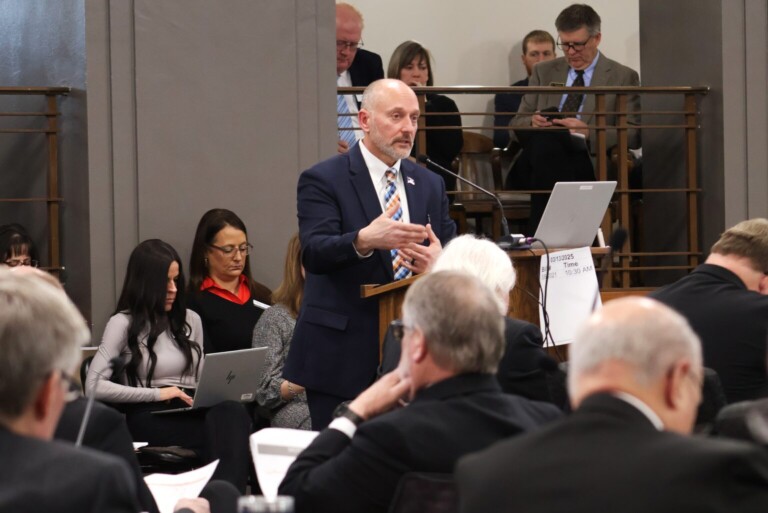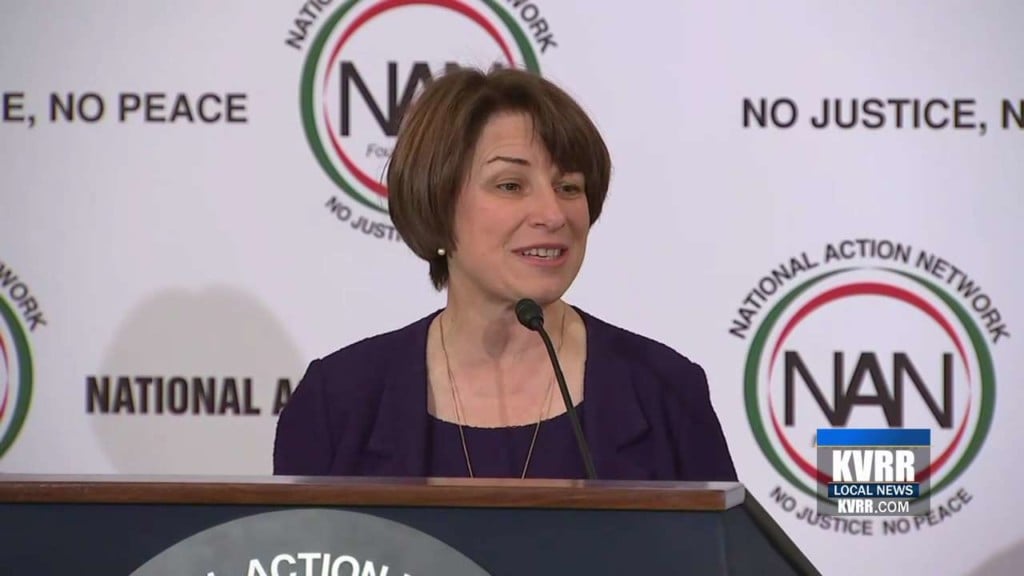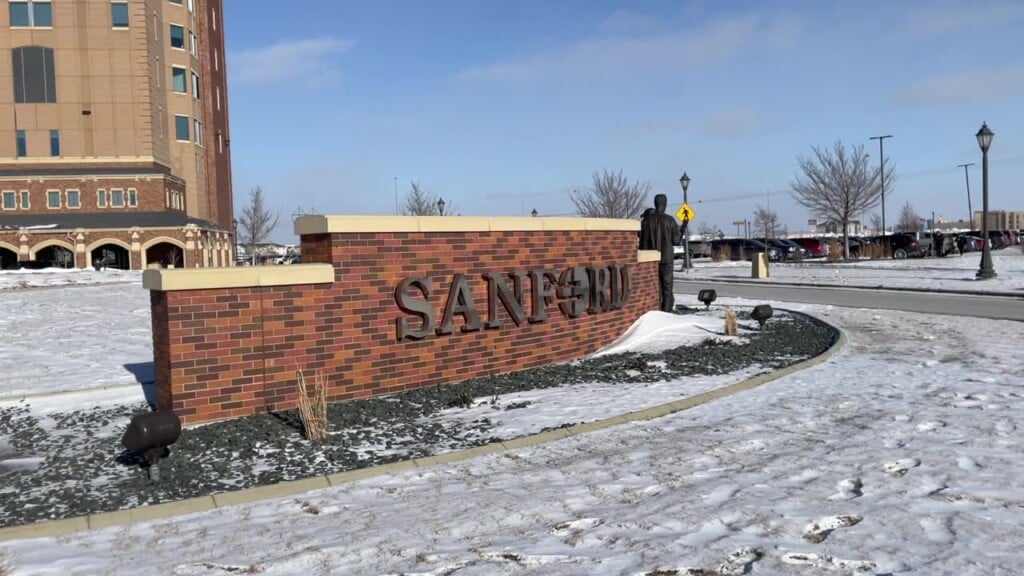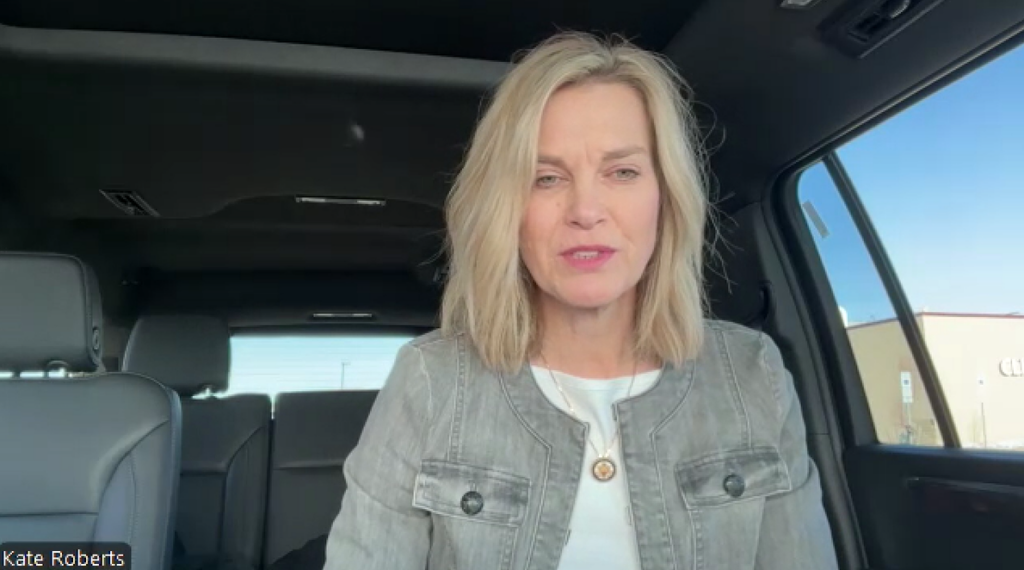North Dakota revenue growth slowing amid drop in oil prices

BISMARCK, N.D. (North Dakota Monitor) —North Dakota lawmakers building the state budget will work with a more conservative revenue forecast, driven by a projected drop in oil prices and uncertainty about tariffs.
A revised forecast presented Thursday projects general fund revenues of about $5.07 billion for 2025-27, a drop of $105.2 million from a January forecast. But even with slower growth that’s predicted, North Dakota is still expected to see revenues about 1.4% higher than the current budget cycle.
Economic consultants who presented to the Senate and House appropriations committees also cautioned about uncertainty with President Donald Trump’s tariffs.

Emily Mandel, senior economist for Moody’s Analytics, gives an economic forecast to a joint meeting of both the House and Senate Appropriations Committees on March 13, 2025. (Michael Achterling/North Dakota Monitor)
“We’ve got a trade war going. I don’t think you can call it anything else at this point,” Emily Mandel, senior economist for Moody’s Analytics, told lawmakers. “The one thing that we can be certain of at the moment is that there is a huge amount of uncertainty and that’s because of the speed with which these policies have changed.”
North Dakota lawmakers use the March budget forecast to inform their budget decisions. Gov. Kelly Armstrong said the forecast still supports state investments in property tax reductions and other priorities.
“This is a conservative forecast, and it needs to be, as North Dakota is a commodity-based economy and we must budget responsibly for the next two years,” Armstrong said in a statement. “But this is not gloom and doom. Sales tax and individual income tax collections are forecast to increase, and oil production is expected to remain strong.”
Joe Morrissette, director of the Office of Management and Budget, said the budget forecast reflects a significant decrease in oil prices. The budget assumes a North Dakota oil price of $59 per barrel in fiscal year 2026 and $57 per barrel in 2027.
The forecast also projects a slight decline in oil production, from about 1.2 million barrels per day down to 1.1 million barrels per day in part due to workforce issues and pricing concerns, Morrissette said.
The March forecast also reflects lower oil tax revenue because of a greater number of wells that now qualify for a tax exemption due to low production, Morrissette said.

Sen. Brad Bekkedahl, center, R-Williston, speaks to Joe Morrissette, director of the Office of Management and Budget, next to Rep. Don Vigesaa, right, R-Cooperstown, during a presentation of the office’s March budget forecast on March 13, 2025. (Michael Achterling/North Dakota Monitor)
The appropriations committees are expected to consider adopting the revenue forecast during meetings on Monday morning.
Sen. Brad Bekkedahl, R-Williston, chair of the Senate Appropriations Committee, said tariffs could adversely affect the state because of its agricultural commodities.
“I think that gives us a little bit of a concern going into the next biennium that maybe we need to be a little more conservative than we were before,” Bekkedahl said. “What we will do with this forecast I think is just downscale from where we were in the January forecast, but we will still probably look for more revenues in 2025-27 than we had in 2023-25, absent a crashing to the oil market.”
Rep. Don Vigesaa, R-Cooperstown, chair of the House Appropriations Committee, said he still expects major property tax reform for North Dakotans this session even with the slower revenue projections. But he added that the debates around Education Savings Accounts and other school choice bills will be interesting because those are investments the state has never made before.
“We’ll have to make some further reductions in spending to balance our budget based on our numbers that we heard today,” Vigesaa said. “You have a handful of those bills that have really big price tags and we can balance our budget pretty quickly if we don’t do some of those.”
The Democratic-NPL Party urged lawmakers to support families by investing in health care, affordable housing, free school meals and property tax reductions.
“Retirement accounts are down, egg prices are up, and middle class families are bearing the brunt,” Sen. Josh Boschee, D-Fargo, said in a statement. “The last thing we should do right now is give public tax dollars to private schools instead of investing in our public schools.”
(Story written by Michael Achterling – North Dakota Monitor)






